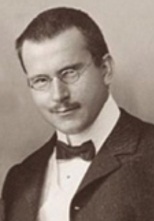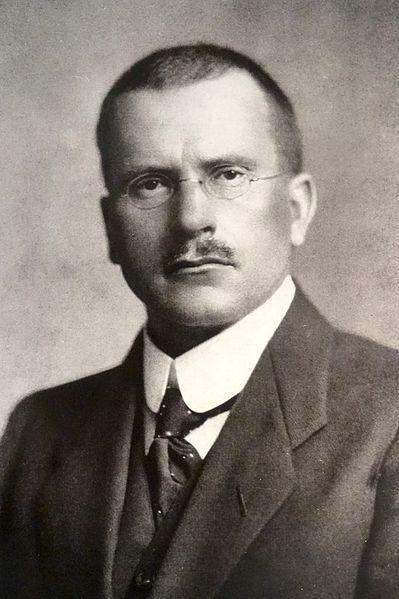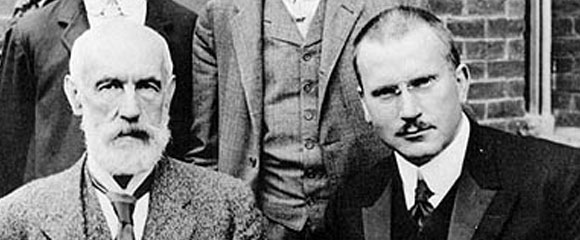Paladin-X
New member
- Joined
- Mar 23, 2014
- Messages
- 34
The purpose of jargon is to conceal meaning.
That is a possible purpose, but not the purpose and certainly not my intention. I resent the implication.
The purpose of jargon is to conceal meaning.
The purpose of jargon is to conceal meaning.

That is a possible purpose, but not the purpose and certainly not my intention. I resent the implication.
The purpose of jargon is to convey meaning
Resent away.
I live in a political Capital run by Public Servants. Both the pollies and the Public Servants use jargon to obscure meaning.
Also cults like mbti use jargon to befuddle the minds of the followers so they won't ask too many searching questions.
No, those who want to convey meaning use plain English.
And yes, George Orwell warned us of jargon in 1946 and showed how to use plain English to convey meaning -
Click on George Orwell: Politics and the English Language



Where is the love?
You want me to love you?
Yet here I am on the opposite side of the world in another hemisphere, iiving in a different culture, and you want me to love you.
The appropriate people to love you are your parents. If they practised the helping mode of child rearing, they would have met your narcissistic need to be loved unconditionally when you were a baby.
If your parents were unable to love you unconditionally as a baby and meet your narcissitic needs, you may have been left with a narcissistic neurosis, like so many here.
If you do have a narcissistic neurosis, you will not get your needs met on Typology Central, rather you can get your needs met by a professional therapist who will give you unconditional love, interpret your neurosis, and so repair your psychological damage.
And the advantage of having your psychological damage repaired is that you will not go on to damage others.
I think Jung was an ISTJ. He looks like he had low F in his photos. There's some hidden fierceness in his eyes which may point towards high S function.



I've seen this kind of look before. I think N types have a less stern look so he's not high in N.
Jung said:As a natural scientist, thinking and sensation were uppermost in me and intuition and feeling were in the unconscious
In a 1925 lecture Jung did say he had a preference for Thinking and Sensing:
- Introduction to Jungian Psychology, Notes of the Seminar on Analytical Psychology Given in 1925
Though he also stated in a 1950s interview that he preferred Thinking and Intuition (already posted by [MENTION=7595]INTP[/MENTION] on the first page).
Carl Gustav Jung wrote that his book Personality Types was based on no empirical evidence.
Jung said:[Psychological Types] is the fruit of nearly twenty years' work in the domain of practical psychology. It grew gradually in my thoughts, taking shape from the countless impressions and experiences of a psychiatrist in the treatment of nervous illnesses, from intercourse with men and women of all social levels, from my personal dealings with friend and foe alike, and, finally, from a critique of my own psychological peculiarity.
Jung said:To the astonishment of the enlightened [the astrological type theory] remains intact today, and is even enjoying a new vogue. This historical retrospect may serve to assure us that our modern attempts to formulate a theory of types are by no means new and unprecedented, even though our scientific conscience does not permit us to revert to these old, intuitive ways of thinking. We must find our own answer to this problem, an answer which satisfies the need of science.
Jung said:How much of the actual psychology of man can be experienced and observed as quantitatively measurable facts? Such facts do exist, and I believe I have shown in my [word-]assocation studies that extremely complicated psychological facts are accessible to quantitative measurement. But anyone who has probed more deeply into the nature of psychology, demanding something more of it as a science than that it should confine itself within the narrow limits of the scientific method, will also have realized that an experimental method will never succeed in doing justice to the nature of the human psyche, nor will it ever project anything like a true picture of the more complex psychic phenomena. ...
One has only to take the concept "feeling," for instance, and try to visualize everything this concept comprises, to get some sort of notion of the variability and ambiguity of psychological concepts in general. And yet the concept of feeling does express something characteristic that, though not susceptible of quantitative measurement, nevertheless palpably exists. One simply cannot resign oneself, as Wundt does, ... to a mere denial of such essential and fundamental phenomena, and seek to replace them by elementary facts or to resolve them into such. In this way an essential part of psychology is thrown overboard.
Originally Posted by Jung
To the astonishment of the enlightened [the astrological type theory] remains intact today, and is even enjoying a new vogue.
Carl Gustav Jung was an astrologer. And today no astronomer in the world believes in astrology.
Both astrology and mbti have the same truth value - none.
In a 1925 lecture Jung did say he had a preference for Thinking and Sensing:
- Introduction to Jungian Psychology, Notes of the Seminar on Analytical Psychology Given in 1925
Newton believed in alchemy, but calculus has held up pretty well.
Jung believed in some flaky stuff — God, for example — but his psychological typology wasn't based on astrology. His insights into hardwired personality differences proved to have enough substance to them that, as adjusted and supplemented by Briggs and Myers, they resulted in a personality instrument that — as McCrae and Costa (the leading Big Five scientists) have acknowledged — was effectively tapping into four of the Big Five dimensions years before there was a Big Five.
Life is complicated.
Carl Gustav Jung was an astrologer. And today no astronomer in the world believes in astrology.
Both astrology and mbti have the same truth value - none.
The only interesting question remains is why do so many believe in astrology and mbti.
Is there a psychological explanation?
We may find out on this psychological site.
Life is simple. Alchemy is a superstition replaced by the science of chemistry. Astrology is a superstition replaced by the science of astronomy. And mbti is a superstition replaced by the science of psychometrics.
The New Age thrives on superstition.
Alchemy is similar to buddhism in the sense that it aims for human wholeness. And yes, it makes associations between things like mars and archetype of war, which might be a bit far fetched(but funnily if you look at world today and the aim to get some use out of mars, i wouldnt be amazed if the 3rd or 4th worl war was about mars). Alchemy doesent replace science by belief, alchemy forms a belief from science, and ofc makes some assumptions about stuff like metallurgy and psyche that they strive for..
Just so that you know that the philosophers stone that is supposed to turn base metals into gold, is a metaphor(that some took literally) about transformation of the psyche from typical sheep like state to enlightened state, where one is a master of his own psyche..
Jung was an alchemist and ( @<a href="http://www.typologycentral.com/forums/members/18736.html" target="_blank">reckful</a> ) a gnostic, who saw "god", not in the christian sense, but gnosticism as a whole being about the inner experience, hence he said when asked about his belief in god that "I dont have to believe, i know.."). He was not astrologist, even tho some of the disciplines he followed talked about astrology as portraying something of the human mind, but its totally different astrology than what astrology is today(which is what you are aiming at)..
Basically jung saw that religions are talking about what comes through the unconscious, but whether or not that the "voice of god" coming from intuition/dreams was some real god, or just a function of the mind, he didnt seem to have a answer for. But he did acknowledge that different religions speak the truth, just that the truth isnt a literal truth..
Its funny that i have come to similar conclusion before reading jung, and i dont regard myself as a theist..
I admire your chutzpah in defending alchemy.
Who would have thought of defending alchemy in a world of the Periodic Table and Chemistry?
It is proof that those under the influence of the New Age and Carl Gustav Jung will believe anything.
And in believing anything, they believe nothing.
The Red Book shows that Carl Gustav Jung was psychotic.
And the defining characteristic of the psychotic is that they are out of touch with reality.
Carl Gustav Jung left Sigmund Freud behind, he left reality behind, and worked freely and willingly for the National Socialists in Germany.
How telling that the New Age has adopted him as their guru.
